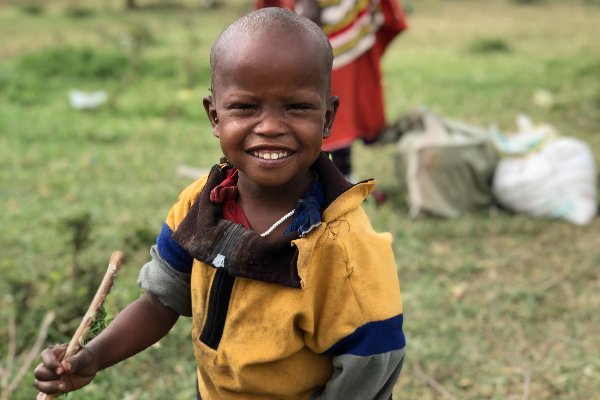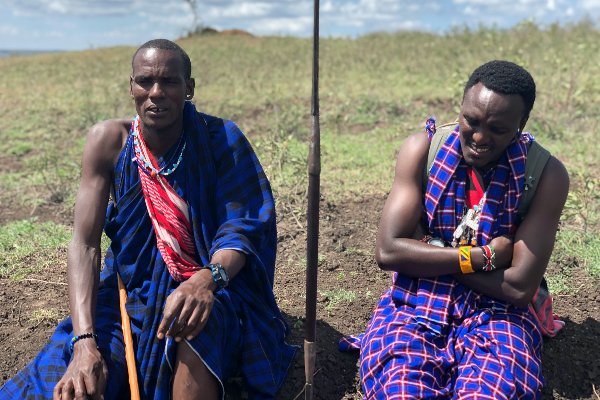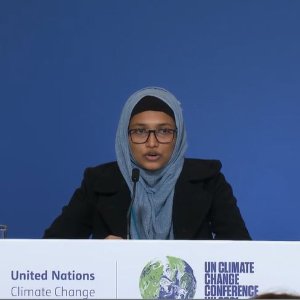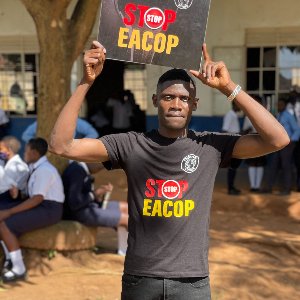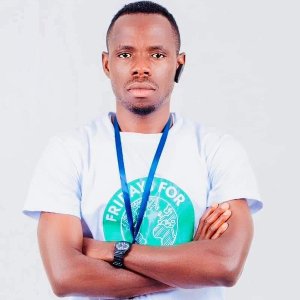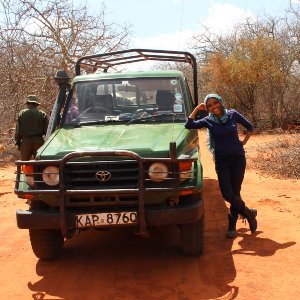This article first appeared in our World Environment Day issue of My Green Pod Magazine, published on 02 June 2022. Click here to subscribe to our digital edition and get each issue delivered straight to your inbox
We reached out to youths from MAPA to find out what immediate challenges they face and how they are tackling them.
We also asked what they need, and in many cases it was as simple as getting the message out. Please read and share these stories and help to raise the support and awareness they so desperately need.
Nyombi Morris, Uganda
What’s your biggest challenge?
The biggest issues we currently face are the capitalist projects that have forced hundreds of people to evacuate. Uganda is blessed with minerals and oil, which has attracted all countries from the global north to come and start investing here with a promise to reduce unemployment opportunities.
One of the projects is known as EACOP, an oil pipeline from Tanzania to Uganda. Ever since it kicked off in 2015 the project has caused thousands of activists to lose their lives; many have been arrested and others have decided to go silent.
Many landowners are unhappy because of their mistreatment and the lack of transparency; they say they were not consulted about this project before work began, and today they are being forced to sell their farms at a cheaper price to allow the money makers’ pipeline to go through.
Last year at COP26 we all agreed that the only way to keep below 1.5 degrees is stop investing in projects that are not supporting a green transition. Today countries that acknowledged that fact are failing to condemn the companies financing human suffering in East Africa. TOTAL is one of the giant companies financing the EACOP project.
How are you trying to fix it?
I decided to mobilise and set strikes to put an end to this project. We visit schools and make sure people understand what is happening in the western part of Uganda and why the costs of living in Kampala, our capital city, are so much higher now than they were a decade ago.
People forced to sell their land migrate to Kampala; some now beg on the streets and others with connections are looking for jobs to start a new life.
Are you making an impact?
What I am doing has an impact I strongly believe, but it’s not enough and we can’t do it alone. We need a global voice in this. No one is safe until we are all safe.
What else could be done?
We don’t have any organisations supporting us – all of them don’t care. We are doing this for the love of nature and humanity. Sometimes we run out of funds and resources to strike – even when we are arrested we don’t have immunity. It is risky but we keep trying because it is our future that is at stake.
What do you need?
We need to make sure that the ordinary people in the global north get to know about this mistreatment and help us to pressure their governments to take responsibility or be held accountable. These people have access to television, internet and radio – they can’t be kidnapped, raped and arrested for speaking up.
We also need support from the media; all these perpetrators watch the news and have access to the internet so they can read articles online. We need the press to amplify our pain, our voice and our struggle.
Fazeela Mubarak, Kenya
What’s your biggest challenge?
I am an environmentalist who has become a climate activist. I have been volunteering with communities and wildlife-related causes for over eight years.
The biggest issue is that, because of the climate breakdown, we are seeing an increase in human-wildlife conflicts, dried-out crops, injuries to communities and girls in schools lacking sanitary pads.
How are you trying to fix it?
We have worked on climate mitigation projects where we work on providing water for wildlife. This greatly reduces the conflicts. We are also working on nature regeneration projects and climate education with school children to educate them and inspire them to preserve the environment. On a larger scale, I raise awareness about these issues whenever I get the platform and take part in NDCs.
Are you making an impact?
In the field, yes. We have seen how, when given a chance, nature can revive incredibly. School children are excited about the regeneration work they are a part of – the reduction of conflicts and girls not missing
out on school due to period poverty.
What else could be done?
My work is on a small scale and the climate crisis is affecting us massively. We need mitigation measures to be put in place. We need more resilient crops and more access to water systems, as relying on rain
is becoming rather difficult.
What do you need?
We need cooperation from governments, in the global south and the global north. There’s also a huge gap in funding for the grassroots organisations where all the work happens.
Grassroots activists are also absent from conversations in climate conferences because, let’s be honest, having access to the internet is a privilege. I know some amazing grassroots activists who simply don’t have this privilege.
Chile Kangwa, Mpika, Zambia
What’s your biggest challenge?
We face increased floods, crop failure, droughts, water scarcity, soil degradation and the rapid loss of biodiversity and forest cover.
There is exploitative and inhumane treatment by some international conservation organisations and no flexible access to funds for youth-led organisations to participate fully in the fight against climate change.
There is a lack of adequate institutional and technical capacity for research and scientific projects, and a lack of coordination and policies at community levels in addressing climate change and its impacts.
How are you trying to fix it?
We are implementing a project in forest regeneration, and forming clubs in sensitive ecosystems to watch and report destructive human activities, which is amplifying youth voices for climate justice.
We conduct agroecology and sustainable development education for a healthy and productive environment and advocate for the creation of a national climate fund to enhance adaptation and mitigation programmes.
We also advocate for the rights of Indigenous people living in protected areas who are being ill treated, and for access to clean water for women and people with disabilities.
Are you making an impact?
Regeneration dialogue action among local chiefs and Indigenous people is doing very well. We are measuring impacts in two forms: interest from the local chiefs to give the organisation management rights and the number of hectares projected to be planted.
Youths are very willing to be mobilised; they fully participate as volunteers or active players in the watchdog service to act in defence of their communities and environments.
What else could be done?
There are two types of climate change in the world: one is called environmental and the other is called economic. The two are linked together and a good fight must target both to have a long impact.
The lack of adequate financing makes it harder to effectively invest in sustainable livelihoods and agroforestry activities. Alternative livelihoods are critical to lowering dependance on forestry, which has massive negative impacts on our environments. It also protects our wildlife from illegal poaching by enhancing tourism and ecosystems.
Smallholder farmers must be given climate-smart skills and capacity to produce more food through sustainable agricultural technologies. This too is difficult to achieve without sufficient funding.
 Play Video about This Rock Might Just Save The World
Play Video about This Rock Might Just Save The World Play Video about Play 2 hours of rock
Play Video about Play 2 hours of rock Play Video about Play 2 hours of brook
Play Video about Play 2 hours of brook Play Video about Play 2 hours of sheep
Play Video about Play 2 hours of sheep

















